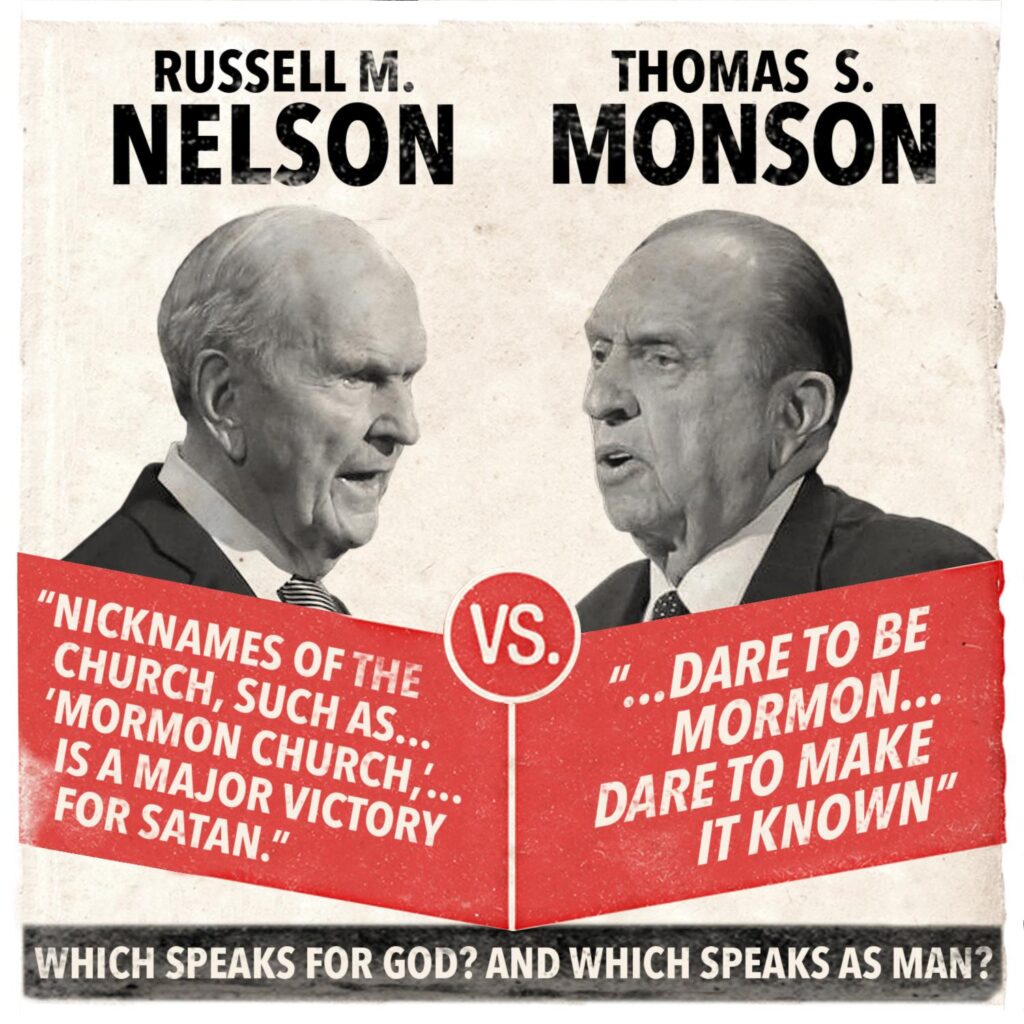So far most everything that I have mentioned could be dismissed by saying “people are imperfect, and a prophet is no exception.” This is a valid argument – after all, if a prophet really is called of God and occasionally receives instructions from God, who am I to criticize or to dismiss the instructions?
This requires me to look carefully at some of the directions that prophets have taken.
Let’s start with Brigham Young. He is most famous for three things:
- Successfully keeping the church alive after Joseph Smith’s death.
- Leading the church to the Salt Lake valley.
- Mandating that black people could not hold the priesthood or attend the temple.
My whole life I was told that priesthood/temple ban happened because of something that they did before they were born – that they were inferior in the sight of God. Then the church changed its tune and started saying that they were not inferior, but that we just “don’t know” why Brigham Young made this declaration. The problem is that this is simply not true.
In the book Let’s Talk About Race and Priesthood by Paul Reeve and published by Deseret Book, the exact story is spelled out. Blacks did have the priesthood under Joseph Smith and Brigham Young was fine with this – he corresponded with many African Americans and affirmed that they were equal in the eyes of God. In fact, at least one African American was called to the 3rd quorum of the 70’s (a position just shy of “general authority” in the church). But when Brigham Young learned that Enoch Lewis (a black man) married Mary Webster (a young and attractive white woman), he said some very disturbing things. He later declared the priesthood and temple ban in an attempt to discourage interracial marriage. As late as the early 1900s, the priesthood ban was considered “policy” rather than “doctrine”, but over time it became embraced as doctrine. Over time, a narrative of disobedience in their pre-earth life arose to justify this (although Brigham Young never stated this).
Spencer W. Kimball was unaware that blacks had ever held the priesthood. When he learned this fact, he was confused and concerned. In 1978 he received a revelation to change this, but only after he spent a year or more of intense prayer on the subject. If such revelation is real, that implies that God doesn’t just drop in and tell you what to do – you have to first be very open to the idea of a change. I keep this in mind when today’s church leadership says that God will never change his mind about gays.
But this story shows a pattern that I fear repeats itself far too often:
- A church leader makes a proclamation. It may not be doctrine at this point.
- After a few decades, leaders become so used to the proclamation that they decide to make it doctrine.
- They then create a backstory to explain why it wasn’t doctrine to begin with or why the doctrine now makes sense.
I often wonder if the Word of Wisdom (a commandment to not drink or smoke) followed this pattern.
In practice, it seems that the church is much more of a “traditional” church than a “living” church. It only changes when one leader dies and a new one takes their place. A great example of this is the use of the term “Mormon.” For most of my life, the church has disliked this nickname and have tried to distance themselves from it, but as people continued to use it, the church eventually decided to lean into it and created a media campaign around the word.
- In the April 1990 general conference, Elder Russell M. Nelson gave a talk insisting that the church should not use the nickname “Mormon”, but instead should use the full name of the church.
- In the following conference, President Gordon B. Hinkley acknowledged Elder Nelson’s talk, but indicated that it was OK to use the nickname “Mormon”.
- When Gordon B Hinkley died in 2008, President Monson continued using the term Mormon.
- Shortly after President Monson died in 2018, now President Russell M. Nelson received a revelation indicating not only that the full name of the church should be used, but that every use of the word “Mormon” was “a major victory for Satan.”

So which of these three scenarios seems more likely:
- God always disproved of the term “Mormon”, but that Presidents Hinkley and Monson were too busy following Satan to realize this?
- God approved of the term “Mormon” under Presidents Hinkley and Monson, but changed His mind shortly after Russell M. Nelson became president?
- God doesn’t care too much either way, but Russell M. Nelson cares so he inserted his own will and called it a revelation from God?
Russell M. Nelson’s own wife (Wendy Watson Nelson) may have answered this question when she said “it is as though he has been unleashed – he is free to finally do what he came to earth to do.”

